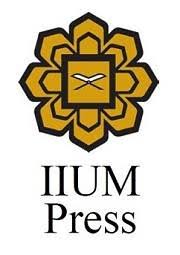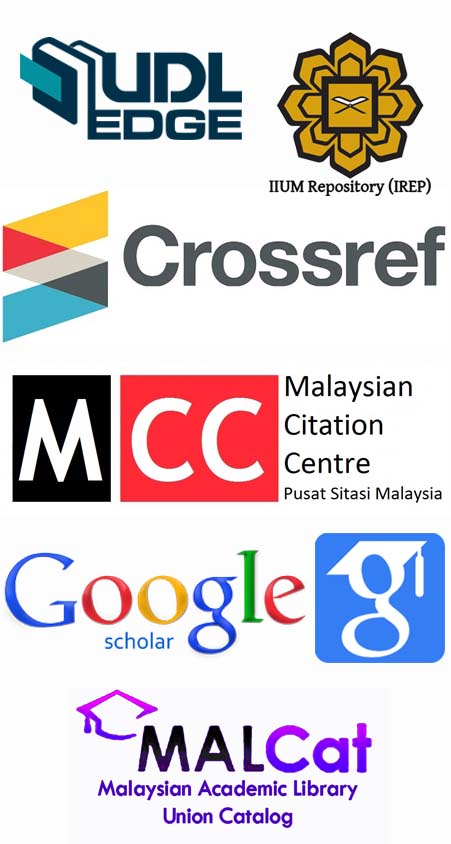Family Empowerment and Role Transformation: Observations on the Importance of Religion
DOI:
https://doi.org/10.31436/alburhn.v7i2.313Abstract
This article examines the concept of family empowerment and role transformation from an Islamic perspective, emphasising the need for integrated value-driven frameworks to address issues of family roles and empowerment. The literature on the subject reveals that studies and research on family empowerment have increased in recent years, enshrining the discourse, and providing insights and solutions to the questions associated with family empowerment. There are numerous efforts in the Islamic world to strengthen family empowerment within the Islamic worldview and cultural context. The article goes on to explain the main elements that comprise the Islamic perspective of family empowerment, as well as how role transformation is required if we are to advance the cause of empowerment. The article concluded that Islam emphasises the importance of understanding the goals and roles of family as a social entity and agent entrusted with the mission of Istikhalf (vicegerency) and I'mar (civilisation) on earth. This implies a more complex articulation of family roles, one that connects them to the higher goals of Islam on the one hand and to human and family well-being on the other.
Downloads
References
Ababneh, S. (2009). Islamic Political Activism as a Means of Women’s Empowerment? The Case of the Female Islamic Action Front Activists. Studies in Ethnicity and Nationalism, 9(1), 1–24. https://doi.org/10.1111/j.1754-9469.2009.01026.x
Abdullah, R., Ali, A., & Hamid, S. A. (2015). Gender Equality, Islam, and Law. Journal of Oriental Studies, 20–36. www.iop.or.jp/.../Raihanah Abdullah1 _[001-153]Journal25-2.pdf
Ahmad, Khurshid. (1982). Family Life in Islam. Leicester: The Islamic Foundation.
Amriah Buang. (2020). Women’s empowerment: Western vs Islamic Worldview. The GOOD TIDINGS, 1–15. https://doi.org/https://thegoodtidings.net/womens-empowerment-western-vs-islamic-worldview/
Anderson, C., Hartman, E., & Ralston, D. J. (2021). The Family Empowerment Model : Improving Employment for Youth Receiving Supplemental Security Income ( SSI ). SSI Youth Solutions.
Barnard, A. J. (2022). Family. Encyclopaedia Britannica, 9–11. https://doi.org/https://www.britannica.com/topic/family-kinship
Daud Abdul-Fattah Batchelor. (2021). An Enhanced Islamic Index of Well-Being (IWI 2.0-2021) for Muslim Countries. ICR Journal, 12(2), 195–234. https://doi.org/10.52282/icr.v12i2.850
Denise J. Poston and Ann P. Turnbull. (2004). Role of Spirituality and Religion in Family Quality of Life for Families of Children with Disabilities. Education and Training in Developmental Disabilities, 39(2), 95–108.
Dhami, S., & Sheikh, A. (2000). The muslim family: Predicament and promise. Western Journal of Medicine, 173(5), 352–356. https://doi.org/10.1136/ewjm.173.5.352
Sadaf Fatima. (2020). WOMEN EMPOWERMENT IN ISLAM. Globus An International Journal OfManagement & IT A Refereed Research Journal, 12(1), 77–80. https://doi.org/10.46360/Globus.mgt.xxxxxxxx
Tauseef Ahmad Parray. (2022). ‘ Women Empowerment ’ in Islamic Perspective. Kashmirobserver.Net, 1–7..
Haseeb Ahmed. (2016). Women’s empowerment in Islamic system of life. Arabnews, March, 22–24. https://www.arabnews.com/islam-perspective/news/896806
S. Mercia Selva Malar Justin. (2018). Business Ethics and Women Empowerment. In Bonfring International Journal of Industrial Engineering and Management Science (Vol. 3, Issue 3). Bonfring International Journal of Industrial Engineering and Management Science. https://doi.org/10.9756/bp2018.1012
Gökhan AK. (2019). Women’s Empowerment In The Muslim World: Reconsidering Rights Of The “Commons.” TJSS The Journal of Social Science, 3(5). https://doi.org/10.30520/tjsosci.518264.
Ikhwan, A., Biantoro, O. F., & Rohmad, A. (2019). The Role of the Family in Internalizing Islamic Values. Dinamika Ilmu, 19(2), 323–335. https://doi.org/10.21093/di.v19i2.1746
Joshanloo, M. (2017). Islamic Conceptions of Well-Being. 109–131. https://doi.org/10.1007/978-3-319-39101-4_5
Kader, H. (2021). Human well-being, morality and the economy: an Islamic perspective. Islamic Economic Studies, 28(2), 102–123. https://doi.org/10.1108/ies-07-2020-0026
Khan Saqib Muhammad, M. A. A. R. (2017). Women Empowerment and Gender Equality in Islam : A Journey from Oppression to Emancipation. SSRN Electronic Journal, October 2017.
Koburtay, T., Abuhussein, T., & Sidani, Y. M. (2022). Women Leadership, Culture, and Islam: Female Voices from Jordan. Journal of Business Ethics, 2018. https://doi.org/10.1007/s10551-022-05041-0
Kohan, S., Simbar, M., & Taleghani, F. (2011). Empowerment in family planning as viewed by iranian women: A qualitative study. Journal of Biosocial Science, 44(2), 209–219. https://doi.org/10.1017/S0021932011000563.
Laura Comstock. (2021). Women and the Qur ’ an : Feminist Interpret Authority ? The Pardee Atlas Journal of Global Affairs, 1–15. https://doi.org/https://sites.bu.edu/pardeeatlas/
Masoud, T., Jamal, A., & Nugent, E. (2016). Using the Qur’ān to Empower Arab Women? Theory and Experimental Evidence From Egypt. In Comparative Political Studies (Vol. 49, Issue 12, pp. 1555–1598). https://doi.org/10.1177/0010414015626452.
Mohsen Joshanloo and Dan Weijers. (2019). Islamic Perspectives on Wellbeing. In Springer Nature Switzerland (Issue March). https://doi.org/10.1007/978-3-030-13921-6
Muljono, P. (2011). The model of family empowerment program for community development in West Java, Indonesia. Journal of Agricultural Extension and Rural Development, 3(11), 193–201.
Murtaza, K. F. (2012). Women empowerment through higher education in Gilgit-Baltistan. International Journal of Academic Research in Business and Social Sciences, 2(9), 343–367. http://ecommons.aku.edu/pakistan_ied_pdcn%5Cnhttp://ecommons.aku.edu/pakistan_ied_pdcn/28
Naseef, Fatimah Umar. (1999). Women in Islam: A Discourse in Rights and Obligations. Cairo: International Islamic Committee for Woman and Child.
Nasution, F. Z., & Rahmat, B. Z. (2017). Empowering Female Labour within Islamic Framework. SCITEPRESS – Science and Technology Publications, Lda., 24, 49–53. https://doi.org/10.5220/0007076600490053
Nur Setiawati Dewi, Piyanuch Jittanoon, and W. W. (2021). Understanding the Meaning of Talented Youth Well-Being by Javanese Muslim Parents. Songklanagarind Journal of Nursing. https://doi.org/https://he02.tci-thaijo.org/index.php/nur-psu/article/view/249333
Özkazanç-Pan, B. (2015). Secular and Islamic feminist entrepreneurship in Turkey. International Journal of Gender and Entrepreneurship, 7(1), 45–65. https://doi.org/10.1108/IJGE-03-2014-0006
Pia, J., Nadia, N., & Yanika, W. (2022). Religious Well-Being Of Muslim Women In Finland. Diakonia-Ammattikorkeakoulu, 1, 49.
Rahimian, Aryan GholipourAshraf, Azam Mirzamani, and M. Z. (2010). IMPACT Model of Women ’ s Empowerment. International Business Research, 3(1), 57–65. www.ccsenet.org/ibr
Simons, G., & Baldwin, D. S. (2021). A critical review of the definition of ‘wellbeing’ for doctors and their patients in a post Covid-19 era. International Journal of Social Psychiatry, 67(8), 984–991. https://doi.org/10.1177/00207640211032259.
Varol, M. B. (2020). Islamic Family as a Concept and Institution and Its Historical Epistemology. İSTEM, 215–228.
Vijayamohanan Pillai N, and B. P. A. (2012). Women Empowerment: An Epistemic Quest. Munich Personal RePEc Archive, 43859. https://doi.org/https://mpra.ub.uni-muenchen.de/43859/
Villani, D., Sorgente, A., Iannello, P., & Antonietti, A. (2019). The role of spirituality and religiosity in subjective well-being of individuals with different religious status. Frontiers in Psychology, 10(JULY). https://doi.org/10.3389/fpsyg.2019.01525
Downloads
Published
How to Cite
Issue
Section
License
In general, reusing or reproducing substantial portions of al-Burhān content requires permission. This includes the use of text, figures, tables, multimedia content, and any other material published in any issues of al-Burhān Journal of Qur'an and Sunnah Studies. For some instances, al-Burhān may make its content freely viewable; however, such material may require permission for reuse. To seek permission, please contact the editorial.









